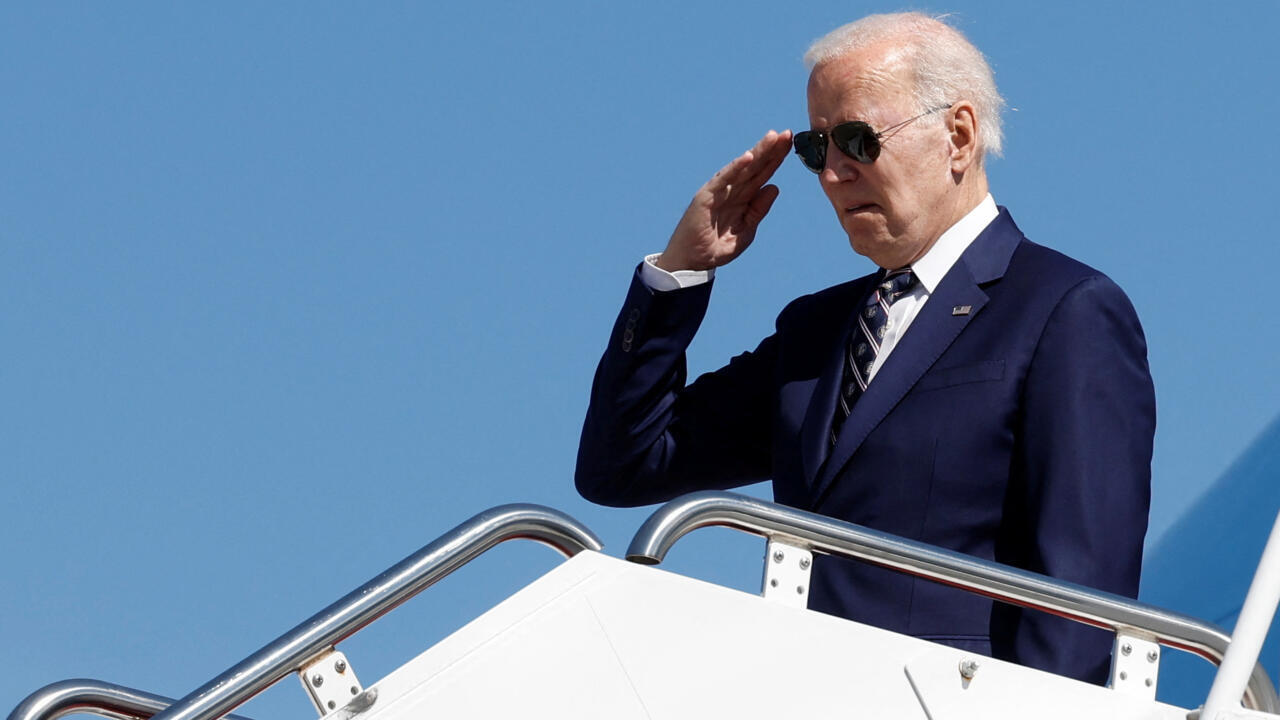Social promises and taxes on the rich: Joe Biden presented, on Thursday March 9, a draft budget that looks like a campaign program with a view to 2024, the strongest measures of which, however, have little or no chance of passing the Congressional barrier.
The 2024 budget plans to cut the deficit by nearly $3 trillion over ten years, the White House has announced.
For this, the American president wants to introduce a minimum tax of 25% for billionaires, or the richest 0.01% of Americans.
The Democrat also wants to raise the corporate tax rate to 28%, from 21% today, a rate that would still remain lower, however, than the 35% that was in effect before former President Donald Trump's reform in 2017.
At the same time, Joe Biden intends to reduce certain expenses deemed "unnecessary", targeting in particular "Big Pharma", that is to say the pharmaceutical sector, and "Big Oil", the oil industry.
“My budget will ask the wealthy to pay their fair share so that the millions of workers who helped build this wealth can retire with the health insurance they paid for,” he tweeted Wednesday night.
When Medicare was passed, the wealthiest 1% didn't have more than 5x the wealth of the bottom 50% combined.
Let's ask the wealthiest to pay their fair share so the millions of workers who helped them build that wealth can retire with dignity and the Medicare they paid into.
— Joe Biden (@JoeBiden) March 8, 2023
In this exercise austere as possible as the presentation of the budget, the American president hopes to find additional political momentum.
Fund "Medicare"
The 80-year-old Democrat – who officially only “intends” to run again in 2024, but already seems to be campaigning – will outline his plan in the early afternoon in Philadelphia, Pennsylvania, a strategic point state. from an electoral point of view.
However, he has no illusions about his ability to materialize his proposals: since the beginning of the year, he has only controlled the Senate.
The other chamber of Congress (that of representatives) is now dominated by Republicans, who are determined not to let any tax increase pass.
With this additional income, Joe Biden estimates that he can, as he promised on Wednesday, ensure for 25 additional years the financing of a health insurance plan benefiting Americans over 65, the "Medicare ", and this without affecting the benefits.
But also increase the salaries of federal civil servants by more than 5%, says the Washington Post.
All this, as the White House assured Thursday, by reducing the federal deficit by "nearly $3 trillion over the next ten years", while Republicans regularly accuse the president of letting spending slip away.
“A budget is a reflection of our values,” Joe Biden tweeted on Wednesday.
It is also, in this case, a political weapon.
The Democrat is trying, with his proposals, to embarrass the Republican Party, which is calling for more budgetary rigor but has so far not explained exactly what expenses it intended to cut.
Joe Biden is therefore happy to constantly accuse the right of wanting to undermine social systems such as Medicare – which the conservatives defend themselves against.
Arm wrestling over the debt ceiling
This budget presentation comes against the backdrop of a standoff between Democrats and Republicans on another financial subject, more pressing than the 2024 election: the so-called "raising the debt ceiling".
The United States, the only industrialized power in this case, must regularly increase, by a vote of Congress, the government's debt capacity.
However, this vote, which has long been a formality, is increasingly politicized.
The boss of the House of Representatives, Republican Kevin McCarthy, assures that his troops will not vote to raise the ceiling of the debt as long as Joe Biden does not curb public spending.
The Democratic president, for his part, has so far refused to negotiate, arguing that the debt accumulated over the years by the country is a shared responsibility.
The stakes are not small: if the showdown goes on too long, the United States will be under the threat of default, never before seen, from July.
The debt of the world's largest economy reached $31.4 trillion on January 19, the ceiling beyond which the country can no longer issue new loans to finance itself, and can therefore no longer honor its payments.
Temporary emergency measures have been taken to be able to continue paying.
With AFP
The summary of the
France 24 week invites you to come back to the news that marked the week
I subscribe
Take international news everywhere with you!
Download the France 24 app

